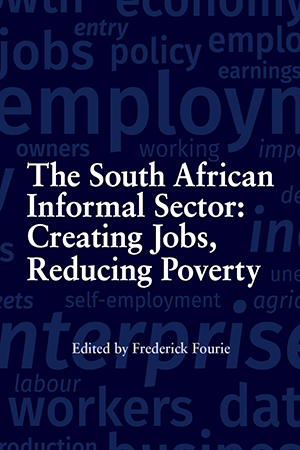
- 2018/490 pages
- Distributed for HSRC Press
The South African Informal Sector:
Creating Jobs, Reducing Poverty
Paperback: $38.50
ISBN: 978-0-7969-2534-3
The outcome of a four-year research project, this collaborative work draws on both quantitative and qualitative evidence to demonstrate the contributions of South Africa's informal sector.
The informal sector provides a livelihood for some 2.5 million South Africans—one in every six South Africans who work. Informal enterprises with employees provide about 850,000 paid jobs, almost twice the direct employment in the mining sector. And these numbers continue to grow, despite obstacles and constraints.
It is clear, argue the authors, that there is a need for well-designed policies to support the sector, rather than suppress it—with recognizing it as an integral part of the economy a crucial first step.
The informal sector provides a livelihood for some 2.5 million South Africans—one in every six South Africans who work. Informal enterprises with employees provide about 850,000 paid jobs, almost twice the direct employment in the mining sector. And these numbers continue to grow, despite obstacles and constraints.
It is clear, argue the authors, that there is a need for well-designed policies to support the sector, rather than suppress it—with recognizing it as an integral part of the economy a crucial first step.







